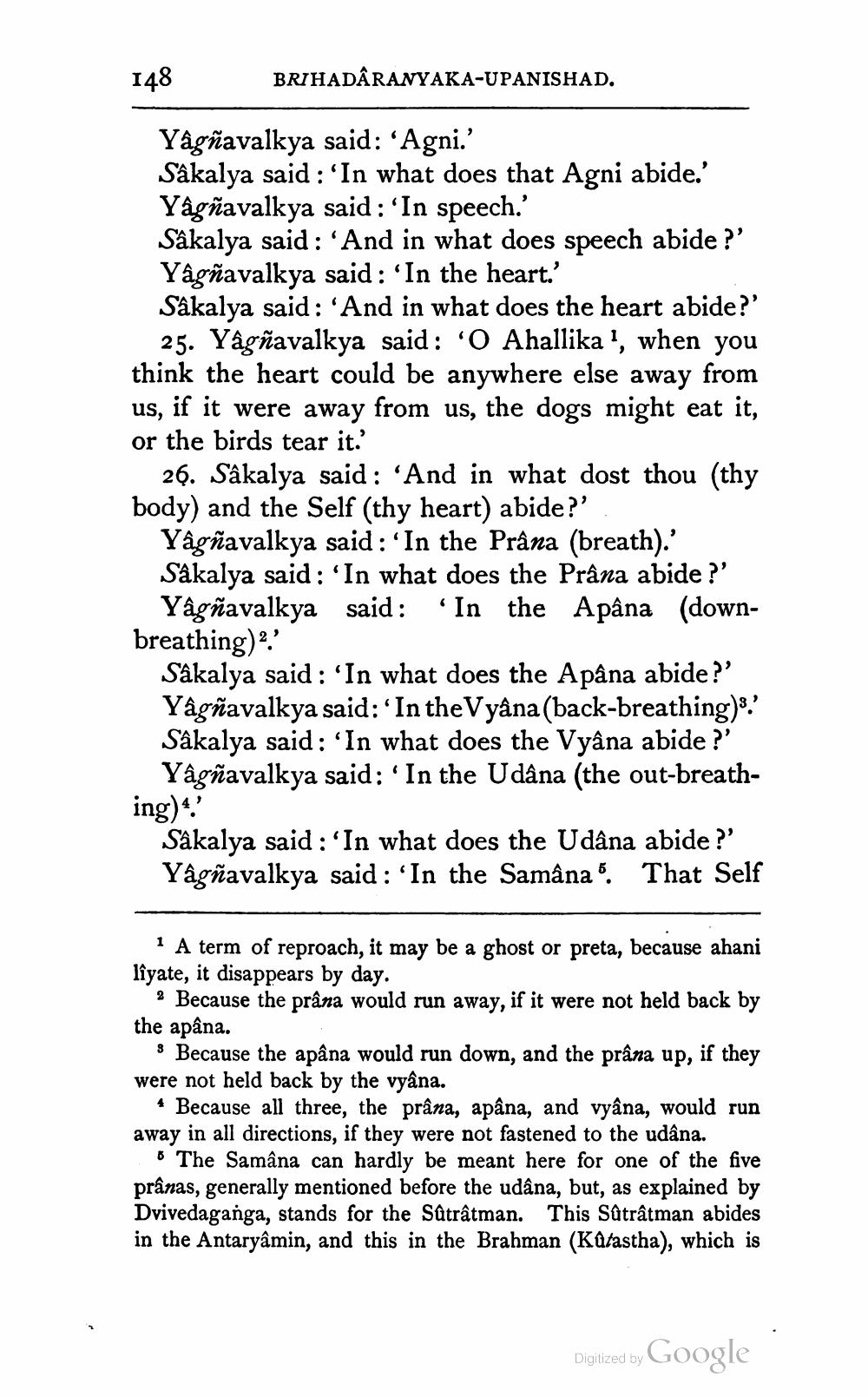________________
148
BRIHADARANYAKA-UPANISHAD.
Yâgñavalkya said: 'Agni.' Sâkalya said: 'In what does that Agni abide.' Yagñavalkya said: 'In speech.' Sâkalya said: 'And in what does speech abide ?' Yâgñavalkya said: 'In the heart.' Såkalya said: 'And in what does the heart abide?'
25. Yagñavalkya said: 'O Ahallika', when you think the heart could be anywhere else away from us, if it were away from us, the dogs might eat it, or the birds tear it.'
26. Sâkalya said: 'And in what dost thou (thy body) and the Self (thy heart) abide?',
Yâgñavalkya said: 'In the Prâna (breath).' Såkalya said: 'In what does the Prâna abide ?'
Yâgñavalkya said: 'In the Apâna (downbreathing)?'
Sâkalya said: 'In what does the Apâna abide?' Yagñavalkya said: 'In theVyâna (back-breathing).' Sâkalya said: 'In what does the Vyâna abide ?'
Yâgñavalkya said: 'In the Udâna (the out-breathing).'
Såkalya said: 'In what does the Udâna abide ?' Yagñavalkya said: 'In the Samâna”. That Self
1 A term of reproach, it may be a ghost or preta, because ahani lîyate, it disappears by day.
3 Because the prâna would run away, if it were not held back by the apâna.
Because the apâna would run down, and the prâna up, if they were not held back by the vyâna.
* Because all three, the prâna, apâna, and vyâna, would run away in all directions, if they were not fastened to the udâna.
o The Samâna can hardly be meant here for one of the five prânas, generally mentioned before the udâna, but, as explained by Dvivedaganga, stands for the Sûtrâtman. This Sūtrâtman abides in the Antaryâmin, and this in the Brahman (Kūtastha), which is
Digitized by
Digitized by Google




